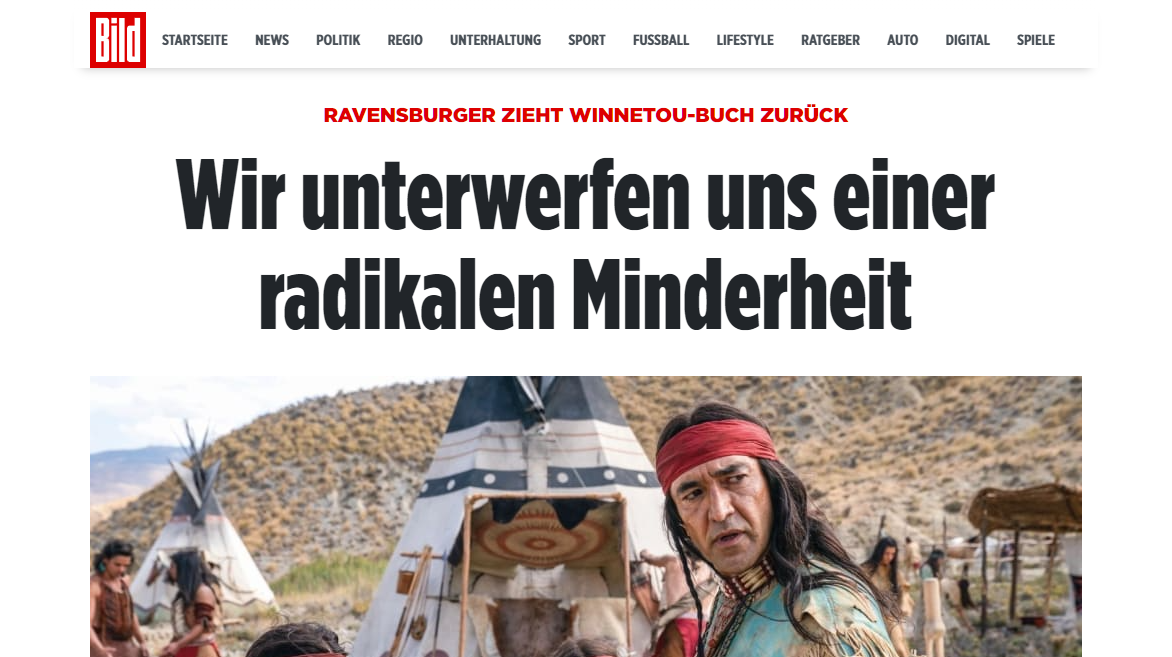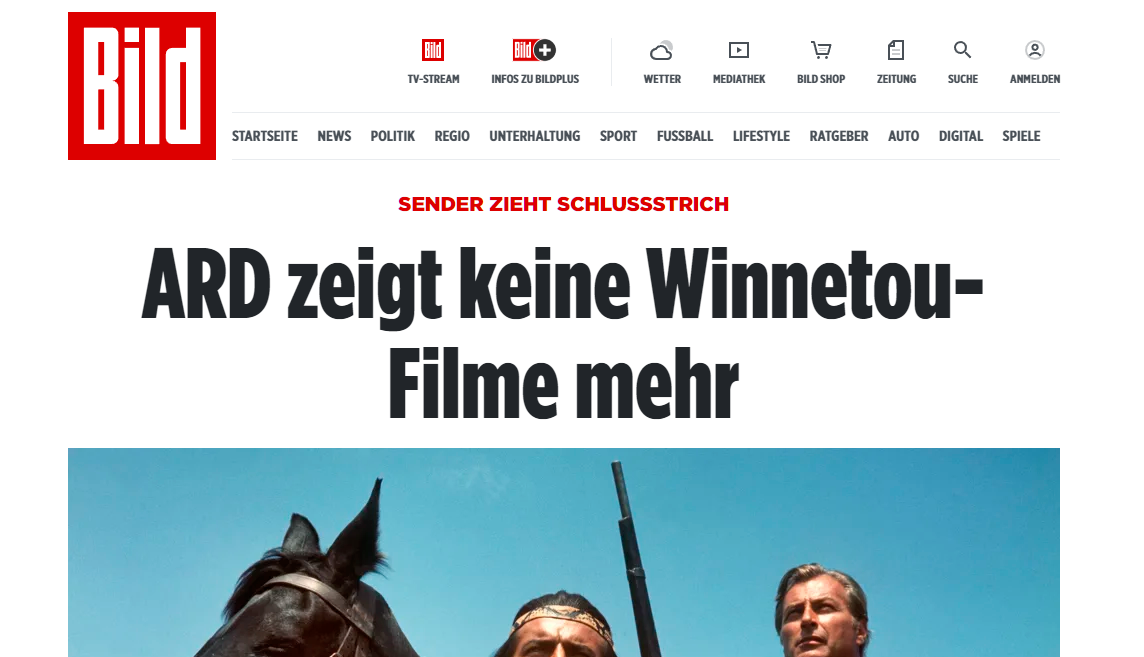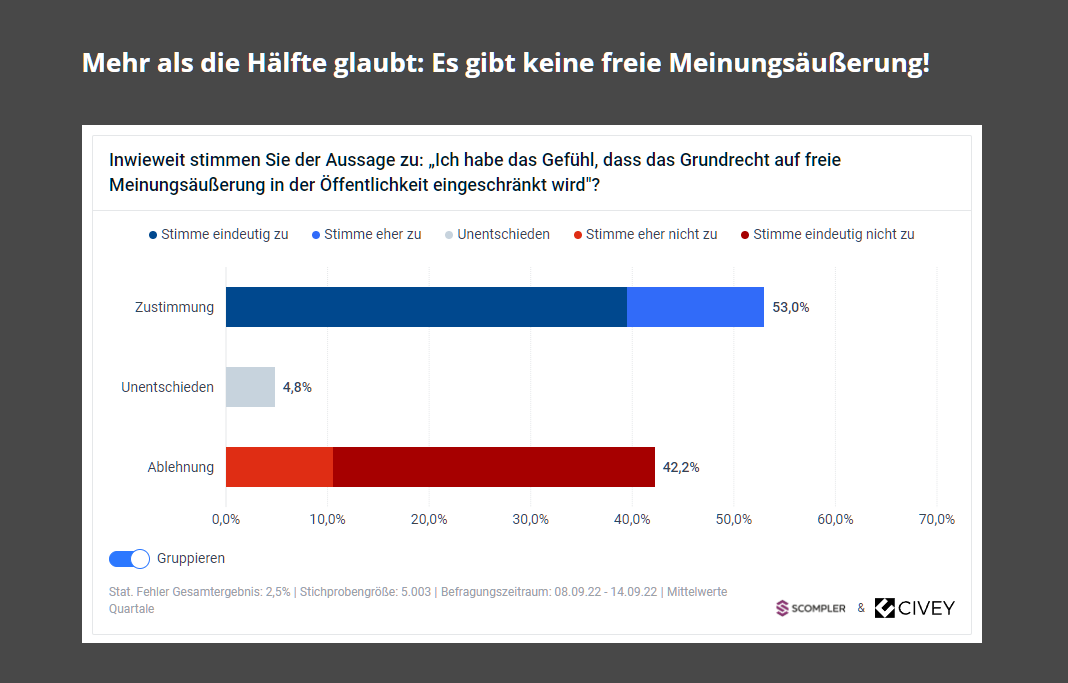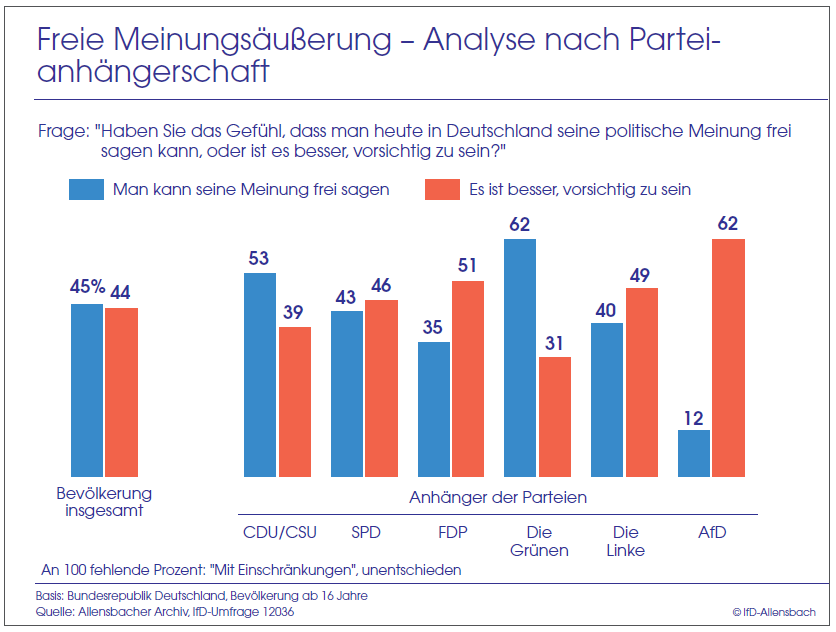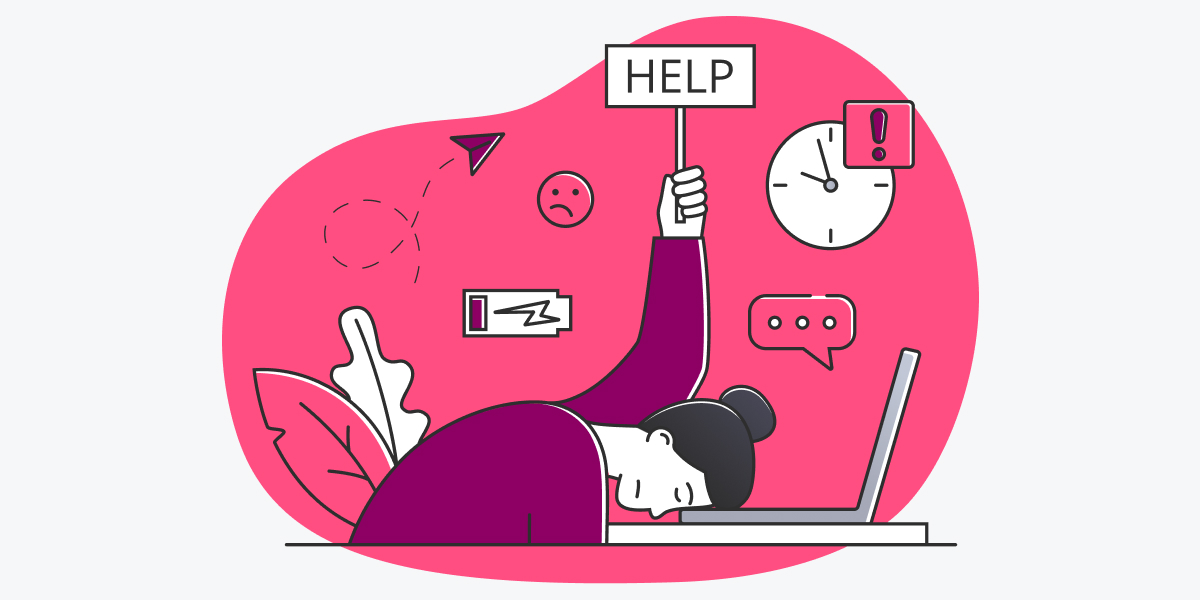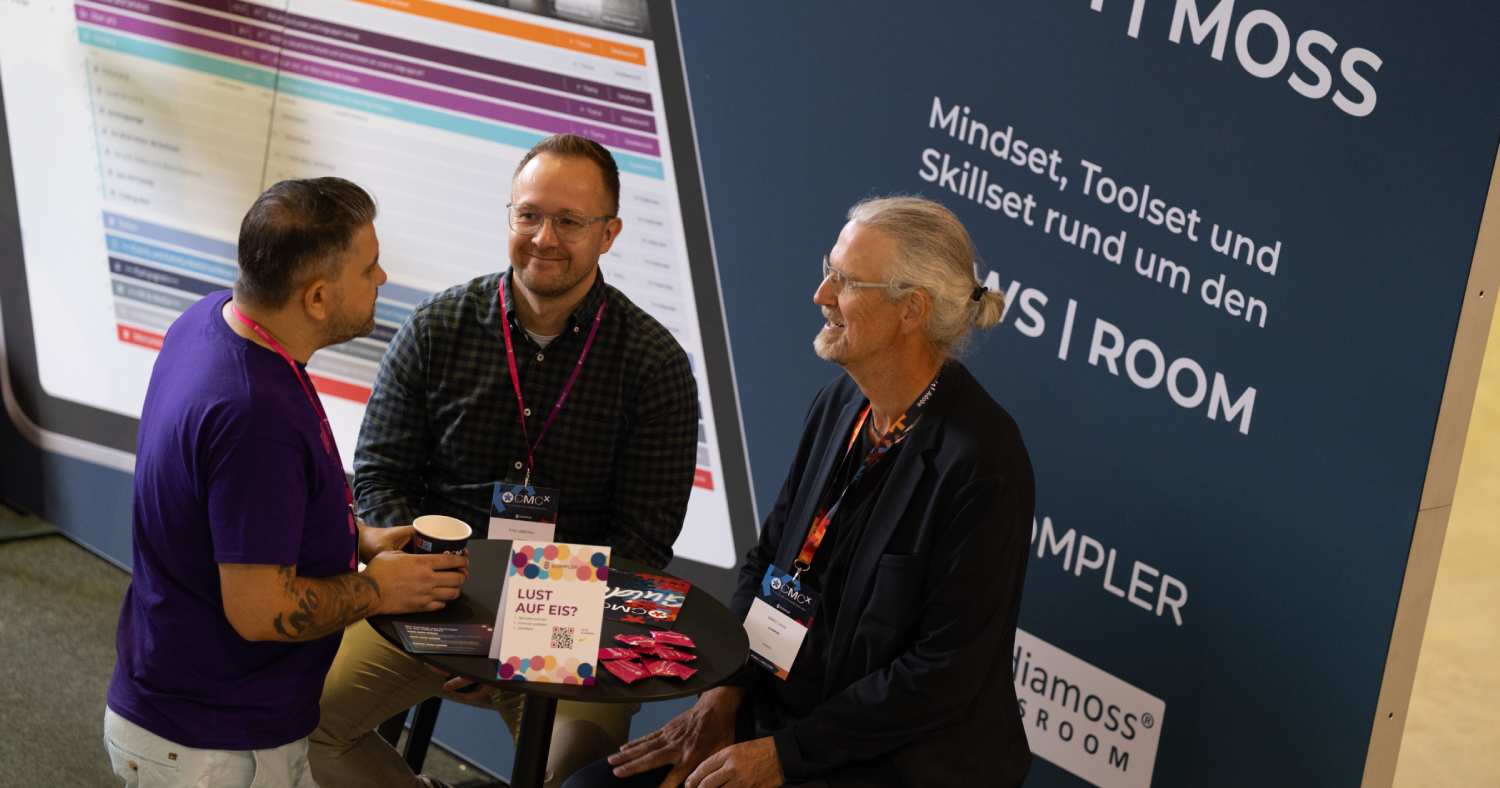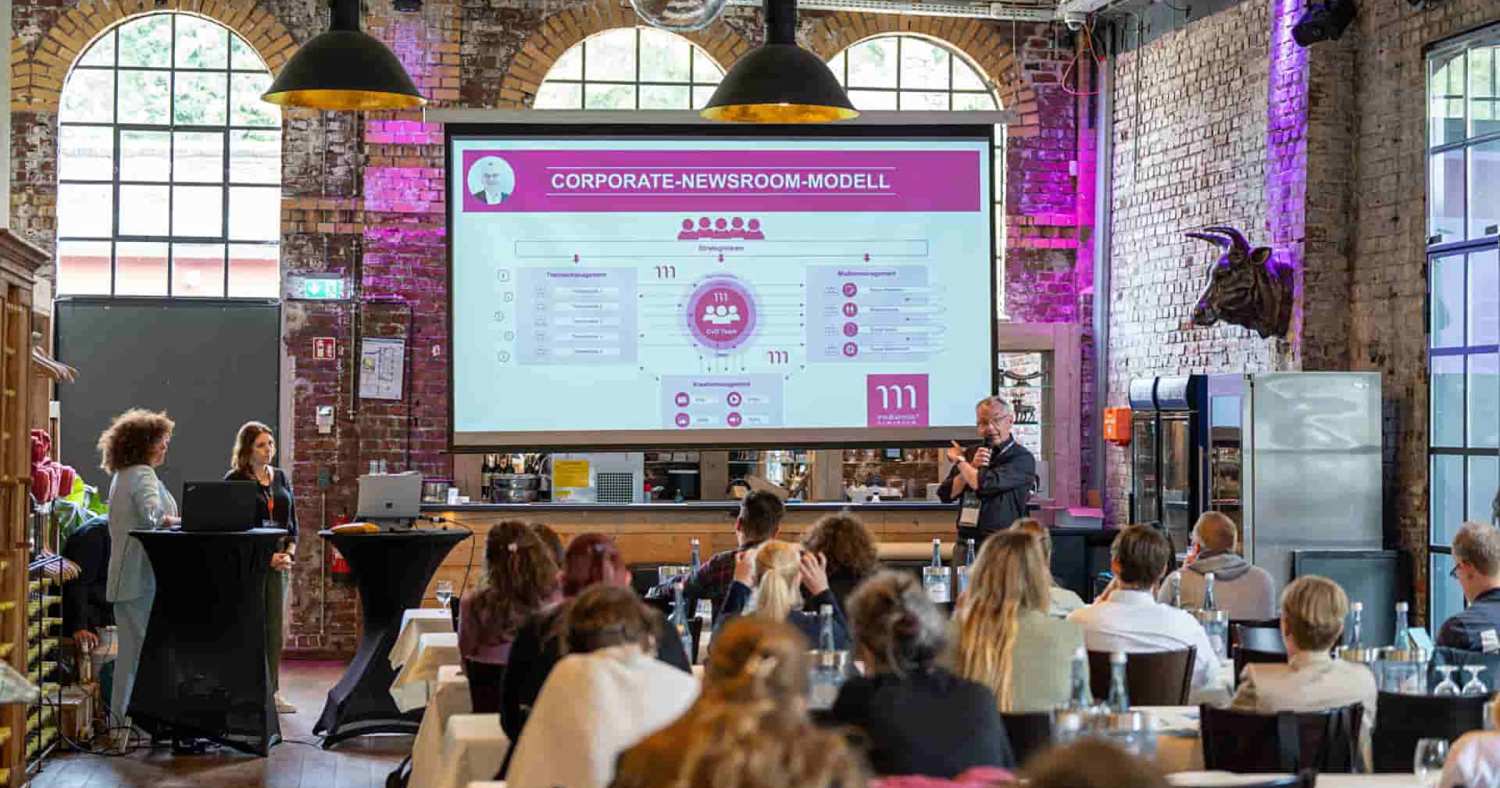Market research findings: Winnetou was much more than a dispute about a children's movie
Winnetou banned? How the highly distorted debate shapes political perception
Two weeks ago, we used data analyses to show that the alleged "woke shitstorm" surrounding Winnetou was a BILD invention, and that BILD had created an "anti-woke shitstorm". The term "woke" refers to efforts to prevent racist or social discrimination or injustice against minorities. BILD had suggested that Winnetou was to be completely banned due to an allegedly loud protest by radical groups and that ARD had therefore removed Winnetou films from its program. It created a narrative of "woke tyranny" and that we should not "submit to the loud cries of a radical minority". This narrative was taken up and spread by hundreds of editors, politicians and celebrities. This triggered an exorbitant storm of indignation.
As our analyses show, the topic dominated the digital media in Germany at times. Rarely has there been such a wide divergence between cause and effect. Because from a sober point of view, it was about a single business decision based on factual criticism of a few merchandising products for a children's film that is often described in cinema reviews as being "out of date". There were no "loud cries" from minorities, no "subjugation", no bans on Winnetou, films or books, and certainly no "book burnings", of which there was some talk. Instead, there was a very out-of-control, sometimes hyperventilating uproar due to disinformation and distortion.
Market research reveals worrying results
We wanted to find out how this disinformation and distortion has affected public opinion. To this end, we conducted several representative surveys of up to 10,000 German citizens with the market research institute Civey. They show how much attention the case has generated, how strongly "alternative truths" have emerged as a result and how strong the polarizing power of such distortions is. The results also show the extent to which perceptions are shaped by political attitudes. In some cases even massively.
- Scope: In total, we identified around 150,000 reports on Winnetou, including 6,500 editorial contributions from daily newspapers, news portals and news magazines: in just two weeks.
- Attention: Almost 93% of respondents were aware of the discussion about Winnetou, 14% of respondents had actively participated in the discussion, 36% of respondents had actively followed the debate.
- Banning books: Almost half (42%) of those surveyed now believe, contrary to the facts, that consideration was given to banning Karl May books and Karl May's work in general.
- Banned from television: More than half (51%) now believe, contrary to fact, that ARD removed the Winnetou films from the program for political reasons because of the current debate about the children's film.
- Censorship: More than half (51%) generally believe that songs, films and books are banned, i.e. censored, by the state in Germany because they are "politically incorrect".
- Freedom of expression: More than half (53%) generally no longer consider the fundamental right to freedom of expression to be fully guaranteed.
It is actually about the question of how we take the interests of minorities into account
The whole discussion is also about fundamental issues of democracy, namely whether censorship or freedom of opinion prevails in Germany and whether we as a society should submit to the "loud cries of a radical minority", as the BILD wrote. This narrative has been massively observed in various media in recent months, including on topics such as "gendering" or "cancel culture". Time and again, certain media and groups claim that something is being forced upon the people. If you didn't know any better, you would assume that there is a conspiracy here. In any case, the same fighting words keep popping up in the same media, as if they were working through them with a checklist.
How loudly can you exercise your right to freedom of expression?
There are two very interesting problem areas behind the whole debate: On the one hand, whether and to what extent we as a society generally take into account the interests of minorities and accept alternative lifestyles. Just think of the entire LGBTQIA+ scene, which is becoming increasingly self-confident. On the other hand, it is a question of how much these minorities are allowed to make their voices heard or even exert pressure. In principle, it is an expression of freedom of opinion that minorities are also allowed to make their voices heard. There is no question about that. In the end, however, there is always the question of how much pressure through communication is legitimate. The limit is certainly reached when the public debate is distorted and disinformed. This is where manipulation begins.
We need a broad debate, especially among experts, on how to deal with disinformation and distortion. They endanger the foundations of our democracy. Otherwise, one day we will be dominated not by "radical minorities" but by "manipulated majorities" - which, as we know, are much more dangerous in a democracy. Normally, our media system works quite well. But it seems to have failed here with Winnetou. Hundreds of editorial offices had distributed BILD's distortions, as well as various politicians and celebrities. There are many reasons for this, which we will examine in a separate article.
What does this mean for the freedom of individuals and companies?
As the Winnetou case shows, the alleged pressure that minorities are said to have exerted on Ravensburger is completely disproportionate to the pressure exerted by the discussion about 'alleged subjugation'. Ravensburger had 170 posts on Instagram. In the great debate about woke tyranny, there were 150,000 posts across the entire internet. That's almost 1,000 times as many. Do companies now have to fear shitstorms if they take the interests of minorities into account in their business decisions - as Ravensburger Verlag has done? This is highly relevant, especially in the area of ESG, i.e. "sustainability-related responsibility". And does this also apply to other groups, even if they want to voice legitimate criticism due to racist and social discrimination? Do they now also have to fear increased shitstorms if they represent "woke interests"? It's an exciting time.
What happened anyway?
We have already analyzed the example of Winnetou in an earlier, very detailed article. We recommend that you at least skim our article to see the full extent. The ZDF heute-show picked up the article and summarized it excellently in this article and also reported on it again on the Internet:

The political relevance
The Club of Rome also pointed out how dangerous these mechanisms are in its latest report "How humanity can still save itself", which has just been published.
"The most significant challenge of our time is not climate change, the loss of biodiversity or pandemics. The most significant problem is our collective inability to distinguish between fact and fiction. There is an industry of misinformation and disinformation in the media, which fosters the polarization of societies and contributes to our inability to work together or even agree on basic facts in the face of collective challenges."
In America, this means that democracy is under real threat, as Joe Biden recently said. We in Germany are still a long way from American conditions. But with the current dynamics, this could quickly change. BILD seems to be applying for the role of Fox News, and we must not forget that there are also tangible economic interests behind all of this. A lot of business can be made for a publisher with the excitement (and by serving a certain political spectrum).
But now to the results in detail:
93% of respondents were aware of the incident
93% of respondents were at least marginally aware of the incident. 14% were actively involved, just under 34% actively followed the discussion, and 44% were at least marginally aware of the debate. With regard to the question of manipulation, the 44% who were only marginally aware are likely to be particularly relevant. This is because they presumably only read the headlines and did not delve into the details.
If we look at the analysis of the overall reactions, this result is not surprising. In the meantime, the number of sites on the Internet had even surpassed the discussions on the energy and gas crisis. The excitement peaked on 27 August, shortly after BILD falsely claimed that ARD had removed the Winnetou films from its program due to the debate about the children's book. Bashing public broadcasters always works well. Using the monitoring system of our partner Talkwalker , we identified more than 20,000 results on Winnetou - in a single day.
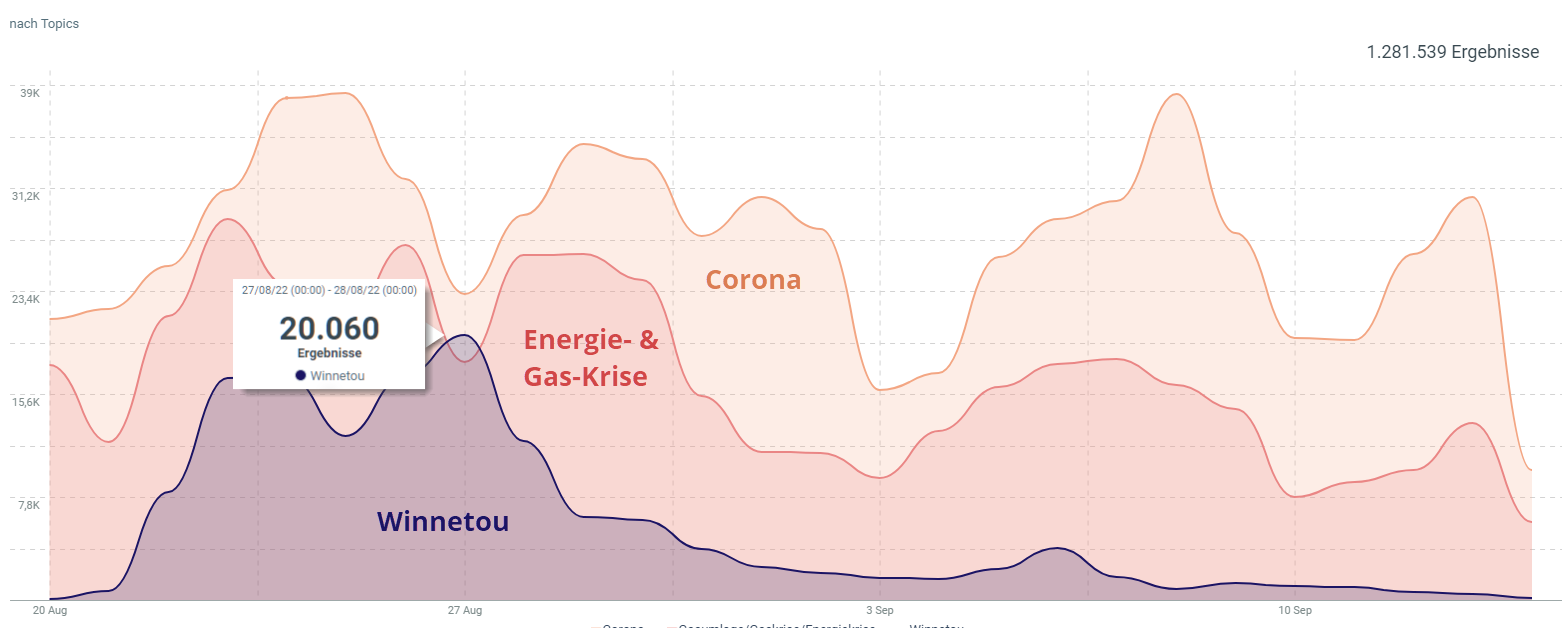
Almost half believe Winnetou should be banned.
As of September 5, 2022, more than 40 percent of those we surveyed were convinced that Karl May books or Winnetou films should be banned, while a further ten percent thought it was at least possible. If you take a closer look, two thirds(65%) are actuallywrong. Because the only correct answer here was "No, definitely not", and so only 35 percent responded. But of course this "feeling" arises when literally thousands of media headlines say "Winnetou must not die", or a discussion breaks out about whether Goethe, Maya the Bee or Struwwelpeter should also be banned - and even leading politicians take up this narrative.
The detailed analysis shows that even this topic is politically ideologized. This may also be an indication that people with specific party-political interests are particularly indoctrinated. The chart shows a significant difference between people who prefer the Greens and people who vote for the AfD or the FDP. While only a quarter of Green voters believe in a ban on Karl May and Winnetou films, well over half of AfD and FDP voters do.
More than half believe: ARD has banned Winnetou!
And more than 50 percent of respondents said on September 5 that the shitstorm invented by BILD had led to the Winnetou films being removed from the ARD program. To put it simply: wrong. Completely wrong. The decision was already made two years ago. Here it's even worse: only 22 percent of the population got it right.
The reason for cancel ing the films was not that they are so racist, but simply that they are so out of date that nobody wants to watch them anymore. This lie, i.e. that there is a connection to the current discussion about racist stereotypes, was again spread by BILD. And, if you'll pardon the pun, it was also published in WELT.
Here, too, we see an almost stereotypical distribution of opinions analogous to party preferences. While more than two thirds of AfD supporters (would like to) believe the story of politically indoctrinated public broadcasting, only one third of Greens and SPD supporters do. Here too, FDP supporters are very close to AfD supporters.
More than half believe that there is censorship in Germany!
Almost as many people who believe in banning the Winnetou films from the ARD program also believe in state censorship, i.e. a state ban on songs, books and films for reasons of "political correctness". From a democratic and constitutional perspective, this is an alarming figure. As a society, we will certainly have to have a few more discussions about this.
In fact, there is no censorship in Germany, especially not for reasons of "political correctness". However, the impression is presumably created because individuals - individual citizens, interest groups or companies - repeatedly oppose certain songs, books or films. However, this is always about private decisions, for example when people demand that certain songs are not played at a public festival. There is never any state intervention here - and if there is, legal action could be taken against the decision of individual authorities.
The distribution of values is shocking when we combine them with party preference. Almost 90% of AfD voters and less than 15% of Green voters. There seems to be something very, very rotten in the state of Germany. How can two groups of people from the same country live in two such massively different realities?
These figures need to be reviewed urgently. I can't imagine that this will go on for long if they are correct. And then we need to talk about it as a society.
More than half believe that there is no freedom of expression!
The right to freedom of expression on the one hand, and the absence of censorship on the other, are perhaps the most important pillars of democracy. 53 percent of respondents feel that the fundamental right to freedom of expression is restricted.
We understand that people today are cautious about expressing their opinions freely or making clear statements about minorities, for example. The current shitstorm initiated by BILD is clear evidence of this: Anyone who takes the interests of minorities into consideration today and says so openly is quickly shouted down and defamed.
However, the wording that the fundamental right to freedom of expression is restricted is also important here. "Fundamental rights" are citizens' rights of defense against the state. Fundamental rights do not (directly) protect against attacks by publishers. The general laws do, for example when Ravensburger Verlag takes action against BILD for defamation and libel. However, this is difficult because publishers are in turn protected by the freedom of the press.
We will certainly still have to discuss this problem as a society. Many people today are afraid to express their free opinion because they are constantly contradicted. This may feel as if freedom of expression is restricted, but in fact it is an expression of freedom of opinion. Because contradiction is also protected by freedom of opinion. By attacking this contradiction, BILD is also attacking freedom of opinion.
And once again, the distribution of values is alarming when we combine them with party preference. Almost 94% of AfD voters feel that their fundamental right to freedom of expression is restricted. Here too, a completely different picture emerges among Green voters. At just over 15 percent, almost all Green supporters believe that they have the right to express their opinion freely.
A year ago, the Allensbach Institute asked a very similar question. A year ago, only 45% of respondents felt that they could freely express their political opinion in Germany. 44 percent of respondents said it was better to be cautious. The survey above asked the question the other way around. In relation to the Allensbach survey, the current results would be: 42.5% do not believe that freedom of expression is restricted (Allensbach: 44%), and 53% believe that they cannot speak freely. This value is nine percentage points higher than the Allensbach value. A comparison of the values according to party affiliation shows that the values for supporters of the SPD and the Greens have improved, while the values for supporters of other parties have deteriorated significantly.
As I said, you can't compare the two polls directly, but the result would be plausible. The AfD in particular, but also the CDU/CSU, rely heavily on the narrative that you are no longer allowed to say anything and that coercion is being exercised everywhere. Markus Söder, for example, was an active protagonist in the Winnetou case, and Friedrich Merz never tires of attacking gendering or even calling for a gender ban at every opportunity.
Three quarters believe: The publisher has folded!
In fact, Ravensburger Verlag itself has said that it has reviewed the process as a result of the criticism and has come to the conclusion that it was a mistake to license the merchandising products. That is also plausible. There was only criticism from customers on Ravensburger Verlag's Instagram profile. In total, there were around 170 comments from a good 100 customers. We have all the comments, and all of them are extremely factual. To assume that such a large publisher would have "buckled under the pressure" is completely absurd. This completely ignores the reality and practice of community management.
